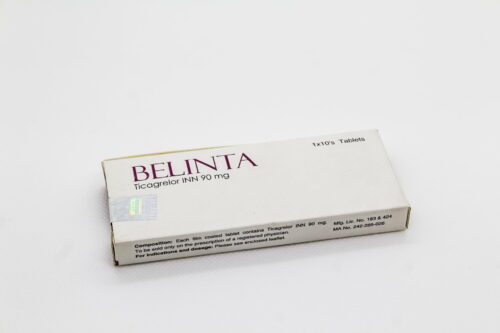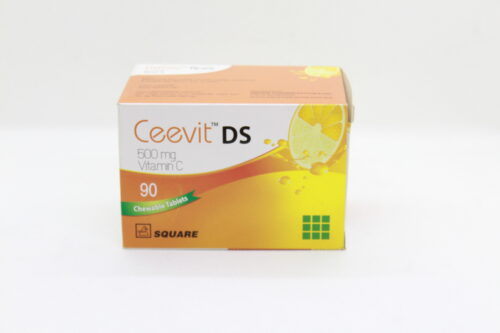Description
Indications
Megestrol is indicated for the palliative treatment of advanced carcinoma of the breast or endometrium (i.e., recurrent, inoperable, or metastatic disease). It should not be used instead of currently accepted procedures such as surgery, radiation, or chemotherapy.
Pharmacology
Megestrol Acetate is a progestational and antineoplastic synthetic medication. While the exact method by which Megestrol Acetate exerts its anti-endometrial cancer actions is unknown at this time, suppression of pituitary gonadotrophin synthesis and the resulting decrease in estrogen release could be factors. Megestrol acetate has antineoplastic effects on breast cancer by altering the function of other steroid hormones and exerting a direct cytotoxic effect on tumor cells. Hormone receptors may be present in some tissues but not others in metastatic cancer. Estrogen generated by the ovaries enters the target cell, forms a compound with the cytoplasmic receptor, and is carried into the cell nucleus in a cyclic process. It causes gene transcription to be induced, causing normal cell processes to be disrupted. Megestrol acetate in pharmacologic quantities not only reduces the number of hormone-dependent human breast cancer cells but also modifies and eliminates the stimulatory effects of estrogen on these cells.
Megestrol Acetate plasma levels are estimated based on the measurement method utilized. After a single oral administration of 160 mg tablets, plasma concentrations peak 2 to 3 hours later. Megestrol Acetate has a plasma half-life of 33 to 38 hours. Approximately 66 percent of an administered dose is eliminated in the urine, with the remaining 20% deposited in the feces.
Dosage & Administration
Breast cancer: 160 mg/day Endometrial carcinoma: 40-320 mg/day in divided doses. At least 2 months of continuous treatment is considered an adequate period for determining the efficacy of Megestrol.
Interaction
When Megestrol Acetate is combined with Zidovudine or Rifabutin, pharmacokinetic investigations demonstrate that there are no substantial changes in pharmacokinetic parameters that would necessitate dosage adjustments. The pharmacokinetics of Megestrol Acetate were not examined with Zidovudine or Rifabutin.
Contraindications
- History of hypersensitivity to Megestrol Acetate or any component of the formulation.
- A known or suspected pregnancy.
Side Effects
Weight Gain: A common side effect of Megestrol Acetate is weight gain. This weight gain has been linked to an increase in appetite but not necessarily to fluid retention.
Thromboembolic Phenomena: Thromboembolic phenomena have been described, including thrombophlebitis and pulmonary embolism (which can be fatal).
Glucocorticoid Effects: Megestrol Acetate’s glucocorticoid action has not been thoroughly investigated. New onset diabetes, worsening preexisting diabetes, and overt Cushing’s syndrome have all been linked to long-term usage of Megestrol Acetate. In addition, clinical cases of adrenal insufficiency have been seen in both stressed and non-stressed patients receiving or discontinuing chronic Megestrol Acetate medication.
Nausea, dyspnea, tumor flare-up, hyperglycemia, glucose intolerance, alopecia, hypertension, carpal tunnel syndrome, mood swings, hot flashes, asthenia, lethargy, sweating, and rash are some of the other symptoms.
Pregnancy & Lactation
Pregnancy Category D.
The use of progestational agents during the first four months of pregnancy is not recommended.
Very small amounts (approximately 0.1%) are excreted in the mother’s milk. It is, however, not known whether these amounts exert any harmful effect on the newborn. Because of the potential for adverse effects on the newborn, nursing should be discontinued during treatment with Megestrol Acetate.
Precautions & Warnings
Any patient being treated for recurrent or metastatic cancer should be monitored closely. In patients with a history of thromboembolic illness, use it with caution.
Use in Diabetics: Megestrol Acetate has been linked to an increase in insulin needs and an exacerbation of underlying diabetes.
Therapeutic Class
Hormonal Chemotherapy is a type of chemotherapy that uses hormones to kill cancer cells.
Storage Conditions
Store at or below 250 C. Protect from heat, light & moisture.
Generic
Megestrol Acetate
Pharmaceutical Name
Ziska Pharmaceuticals Ltd.



 Belinta 90MG
Belinta 90MG  Gerber Cereal 227 GM
Gerber Cereal 227 GM  Ceevit Ds 500 MG
Ceevit Ds 500 MG